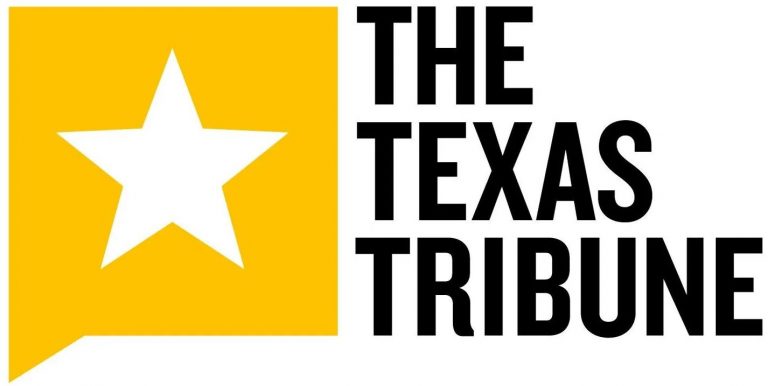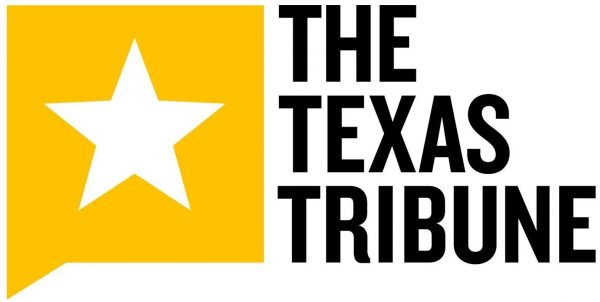Texas
One less safe space: The impact of UT-Austin’s new DEI ban
The new state law prohibits public universities from having diversity, equity & inclusion programs. Students say schools are overcorrecting

By Kate McGee and Ikram Mohamed | AUSTIN, Texas – Aaliyah Barlow needed to raise $20,000 by the end of the month.
As president of the University of Texas at Austin’s Black Student Alliance, a student group, the junior is in charge of securing funding for three dozen of her peers to attend an annual conference for Black student leaders within the Big 12 Athletic Conference. For months, she’s been asking different colleges and departments within the university to sponsor their travel, as they’ve always done before.
But this year, it’s been crickets.
President Jay Hartzell’s office — usually their largest supporter — didn’t return emails, she said. Neither did other typically supportive departments. At least one other department flatly said no.
She was told it was because of Senate Bill 17, the new state law that bans diversity, equity and inclusion offices, programs and training in Texas public universities.
As of Friday, Barlow said she and her peers have raised about $6,000, which will cover half the students originally set on attending. Instead of renting a bus, they now plan to drive the 14-hour trip. Or they’ll meet up with another school along the way to take their bus to the conference.
“It’s been really frustrating, especially since we’ve been getting money from these places every single year,” Barlow said. “We’re just a student organization … so I assumed we’d be okay. But that’s not the case, unfortunately.”
/https://static.texastribune.org/media/files/7b45f087a814286cfafde5ab9b46f866/0220%20DEI%20MC%20TT%2016.jpg)
Situations like Barlow’s are playing out on college campuses across the state. At UT-Austin in particular, feelings have been fraught with students and advocates saying the school is going above and beyond what’s required by the state’s DEI ban.
Since the law went into effect at the beginning of this year, UT-Austin has closed a beloved multicultural center that housed several student organizations sponsored by the school and ended a scholarship program for undocumented students. This month, the undergraduate college canceled a lecture on finding mentors in higher education through the lens of the LGBTQ student experience after university lawyers argued it could be construed as diversity training. Some students say university officials have gone back on their word, often with little explanation, after promising that certain programs would not be impacted by the ban.
“I don’t think people even understood for real what it was until January 1, when they came back and they noticed the [Division of Diversity and Student Engagement] is not here anymore. They noticed the Multicultural Engagement Center letters have been ripped off the wall of this room,” Barlow said. “It wasn’t taken seriously because I don’t think people really understood how severe it was until it was already in effect and it was too late.”
Critics of the law say the ban’s language is vague and universities’ legal teams are advising their clients to play it safe with their interpretation of it. They believe the tendency is to overcorrect, which is ultimately harming students and faculty.
“It’s becoming a tool to usher in a colorblind university system in a way that is evasive of the history of race discrimination, evasive of state-sanctioned exclusion, not to mention attacks on the queer community,” said Antonio Ingram II, a lawyer with the Legal Defense Fund, a Washington, D.C.-based legal organization that focuses on racial justice.
UT-Austin officials have provided little information to students and faculty who have demanded more transparency about how they are interpreting the law. They did not respond to interview requests or a list of written questions.
Amid that silence, students are scrambling to fill the financial gaps and continue traditions the university used to support.
/https://static.texastribune.org/media/files/e5c3b942ce32f9e02fbfe41e2d0f9774/0219%20DEI%20MC%20TT%2010.jpg)
Texas’ DEI ban
Early last year, conservative think tanks started to home in on DEI offices, accusing them of indoctrinating students with left-wing ideology and forcing universities to hire people based on how much they support diversity efforts rather than on merit and achievement. Republican lawmakers agreed and have introduced legislation targeting these offices across the country. Texas became the second state to ban DEI offices, programs and training at public universities, following Florida.
“DEI programs have been shown to be exclusive, they have been shown to be ineffective and they have shown to be politically charged,” state Sen. Brandon Creighton, R-Conroe, the ban’s author, said on the Senate floor last year. “Many of these programs have been weaponized to compel speech instead of protecting free speech.”
Over the past few years, DEI offices have become increasingly common at universities. They are typically charged with boosting faculty diversity and helping students from all backgrounds succeed.
These offices often coordinate mentorships, tutoring and support programs to help students from underrepresented groups feel welcome and find a community on their campuses. They also provide spaces for a wide range of student groups to gather, from students of color and LGBTQ students to students with disabilities and veterans. In addition, these offices help departments cast a wide net when searching for job candidates and ensure that universities don’t violate federal discrimination laws.
/https://static.texastribune.org/media/files/4beba2adeb042abe97557e6063a12d94/0222%20DEI%20SCENE%20MC%20TT%2002.jpg)
(Photo Credit: Maria Crane/The Texas Tribune)
Faculty and students have argued that banning universities’ DEI efforts would make it harder to recruit and retain top faculty and could lead some students to feel unwelcome and unsafe on campus. They also argue it walks back years of progress toward making sure that everyone, especially underrepresented students or those previously barred from entry, can succeed in school.
Texas’ DEI ban states that public colleges and universities cannot create diversity offices, hire employees to conduct DEI work, or require any DEI training as a condition for being hired by or admitted to the university. All hiring practices must be “color-blind and sex-neutral,” the law says.
The law also lists some areas that it should not affect, including course instruction, faculty research, student organizations, guest speakers, data collection or admissions. It specifies that it does not apply to any “policy, practice, procedure, program, or activity to enhance student academic achievement or postgraduate outcomes that is designed and implemented without regard to race, sex, color, or ethnicity.”
In preparation for the law’s implementation, UT-Austin administrators shared with students and employees guidance from the University of Texas System, which oversees the school, about what is permitted under the ban. For instance, system guidance states that while student organizations are exempt from prohibitions, some of those groups may shut down based on the extent of institutional support they receive from the university.
“As with all new laws, I fully expect that there will be divided opinions on our campus about both the law itself and its eventual impacts on our University,” Hartzell wrote in a December letter to the campus community. “But it is the law, and with compassion and respect for all of our community members, we will comply.”
/https://static.texastribune.org/media/files/e3e6fb566e4e538b66739d48d2cc7767/0222%20DEI%20SCENE%20MC%20TT%2001.jpg)
(Photo Credit: Maria Crane/The Texas Tribune)
“What they said wouldn’t happen, happened”
The DEI ban’s exclusions led students like Guadalupe — a UT-Austin junior who is undocumented and asked to be identified only by her middle name out of fear of making her immigration status public — to believe that some of the programs she relied on throughout her time at the university would not be affected.
She mentioned the Monarch Program, which provided support and scholarships to students from undocumented families or with fluid immigration statuses. It was founded in 2016 by a UT-Austin graduate student, but the university took it over, hiring its first full-time employee in 2021 and funneling university funding for the first time just last year.
Guadalupe stumbled into the program shortly after her laptop died three years ago, a few weeks into her freshman year. She was able to borrow a laptop through Monarch’s technology lending library until she saved enough money to buy a new one. Ever since, she’s worked with the program to help other students like her stay in school and graduate.
But last month, UT-Austin eliminated the program without a public explanation. According to The Dallas Morning News, internal documents show UT-Austin believed the program violated the state’s DEI ban and federal law.
Guadalupe said she was surprised UT-Austin ended the program, especially because university officials gave students reassurances last fall that SB 17 would not affect it. She’s also frustrated the university didn’t give the program a chance to adjust to the new law.
“All these different programs were being [told], ‘This is how your program does not comply with SB 17, this is what you need to change,’” she said. “And that was just not a conversation that was had about Monarch.”
Students also argue SB 17 should not apply to the Monarch Program since it did not implement any race or gender-based programming.
“People who are undocumented come from very different backgrounds,” Guadalupe said. “You can’t just point at undocumented folks and be like, ‘oh, this is specifically like [for] the Latino community or the … Asian community,’ because it’s a very diverse group.”
In late January, a group of university department chairs sent a letter to UT administrators asking for clarity about the decision to end the Monarch Program.
“We recognize the immense challenges that SB 17 has created for your offices, but we hope that the process of compliance will not result in throwing out too many babies with the proverbial bath water,” the professors wrote.
They did not receive a response.
Since Monarch was canceled, a student-run organization called Rooted, which also provides support for undocumented students, has taken over some of the services that the program used to provide.
/https://static.texastribune.org/media/files/dce151bb670c6e691e7d85cbd889db8a/0220%20DEI%20MC%20TT%2005.jpg)
(Photo Credit: Maria Crane/The Texas Tribune)
Victoria Uriostegui, a UT-Austin junior and a member of Rooted, said watching the university eliminate Monarch without warning or explanation was exactly the kind of repercussions she warned lawmakers about when she testified against SB 17 at the Texas Capitol last year.
“What they said wouldn’t happen, happened,” she said. “Programs that were not supposed to be impacted are impacted. And I think that’s just what makes it more infuriating that many students continually testified about these chilling effects. Now we’re seeing them come.”
One less safe space
Aneesha Tadikonda felt seen in the university’s Multicultural Engagement Center.
Home to six student groups — Afrikan American Affairs; the Asian Desi Pacific Islander American Collective; the Latinx Community Affairs; the Native American and Indigenous Collective; Queer and Trans Black Indigenous People of Color Agency; and Students for Equity and Diversity — the center served as a meeting place for students of various underrepresented backgrounds and identities.
When she was a freshman, it was a place she felt comfortable asking for help as she navigated the daunting first year of college. Staffers there knew she wanted to go to medical school and would send her free study guides for the exam required to apply and discount codes for study materials. She made friends through movie screenings and book clubs. But she especially loved the opportunity to network with other Asian American students and leaders on and off campus.
“I heavily depended on [the center] for finding a community of people that had the same goals as me,” Tadikonda said. “Outside of class, that’s very difficult to find, especially as someone who’s really involved with activism and their identity.”
Students like Tadikonda were shocked when they learned early this year that the center was abruptly shut down in response to the state’s DEI ban. The university didn’t send out any formal communication to students regarding the center’s closure.
When students returned to campus from winter break, the space was still open for students to work in, but the staff was gone and the center’s name was removed. Since the ban does not apply to student organizations, the culturally specific groups once housed within the center were allowed to continue operating, but only if they disaffiliated from the university and stopped receiving financial support from the school.
Just like with the Monarch Program, students said the MEC didn’t get a chance to make changes to comply with SB 17. The center’s staff was given notice of the center’s closure about 10 days before the ban went into effect, students said.
Students are demanding that the university reestablishes the center in a way that’s compliant with SB 17. They feel that shutting down the center went beyond the requirements of the law and pointed out that other Texas universities, like the University of Texas at San Antonio and the University of North Texas, kept their versions of the center open.
“I think our proximity to the Capitol is a large part of it. I think donors are a large part of it. But I would 100% say it’s an over-compliance,” said Kelly Solis, a UT-Austin senior and co-director of Latinx Community Affairs.
/https://static.texastribune.org/media/files/a3ce2594bab9730ed98ea16617f311ae/0220%20DEI%20MC%20TT%2007.jpg)
(Photo Credit: Maria Crane/The Texas Tribune)
The MEC was originally founded in 1988 by students who felt the university lacked proper support systems for Black and Hispanic students. Ten years later, the university’s Office of Student Affairs absorbed the center and gave it two full-time staff members.
The MEC’s abrupt closure has left students with the burden of preserving programs that previously received university funding and have been essential to their college experience.
That includes one of the most anticipated events that the six student groups within the MEC helped organize each year: cultural graduation ceremonies, which are smaller celebrations hosted for Black, Hispanic and LGBTQ students, among others.
“It’s such a big accomplishment when you come to UT, and maybe as a first generation student or a child of immigrants … and be away from home for the first time,” Tadikonda said. “It breaks my heart that now we have to work 100 times harder just to give people what they deserve, to give them the recognition that they might not get in a university-wide graduation.”
Organizers said these ceremonies highlight themes, like family, that are important for the groups they represent and that aren’t always part of university-wide graduations. For instance, families are invited to participate in GraduAsian, the ceremony that commemorates the achievements of Asian students. In the past, speakers have publicly thanked them for attending and helping graduates through their college journey.
/https://static.texastribune.org/media/files/8feec60d24a827b4e1804ebeeab2a9df/0220%20DEI%20MC%20TT%2012.jpg)
The student groups that used to be housed at the MEC now say they’re unclear if they can even reserve space on campus to host their events.
“People are scared, people who work for the university,” Solis said. “They might want to give us money or might want to provide resources in some way for our events, but don’t know if they can. So just out of fear, uncertainty and a lack of transparency, they might just say, ‘Sorry, we can’t provide anything at this time.’”
The student groups have created GoFundMe pages seeking donations to help cover the expenses of hosting celebrations for this year’s graduating class. The university’s alumni organization, Texas Exes, recently announced that they’d host cultural graduations for students, according to The Daily Texan.
Ariana Seeloff, a senior and co-director of the Afrikan American Affairs Collective, said this particular class — whose high school graduations were disrupted by COVID in 2020 — are determined to host these celebrations.
“To have this happen four years later, and not be able to have a proper send-off from college for these degrees that we’ve worked so hard to earn, it’s unimaginable,” she said. “This senior class deserves to be celebrated.”
But students say it’s unclear what will happen to culturally specific graduations after this year.
Lecture or training?
Paige Schilt, a former lecturer at UT-Austin, was thrilled when she was invited by the university’s undergraduate college to give a talk this semester about how to find a mentor as a student navigating higher education for the first time.
Schilt, a therapist, teacher and writer, planned to lean on her own personal experience as a LGBTQ student as she found ways to advocate for herself as a scholar. Staff and administrators were excited about the lecture, she said.
But in mid-January she got an email saying that UT-Austin’s legal office had raised concerns the lecture could violate SB 17 because it “would fall within a prohibited training, activity, or program.”
SB 17 prohibits mandatory diversity training, which is defined as training developed in reference to race, color or gender identity. But Schilt said her lecture was not training. SB 17 does not prohibit any DEI-related scholarly research or creative work, and faculty are still allowed to share it on campus.
Schilt said she tried to work with the undergraduate college to shift the lecture’s format and instead give a reading from her memoir in progress in the hope of appeasing the university’s lawyers, but was unsuccessful. Ultimately, her talk was replaced with another lecture.
“I was really sad and discouraged to think that this law was having such a chilling effect, that basically any person from one of the marginalized communities targeted by SB 17 speaking from their own experience was now, by definition, a training,” she said.
/https://static.texastribune.org/media/files/9f73b47e1c79be402a24f715937a3caa/0219%20DEI%20MC%20TT%2005.jpg)
(Photo Credit: Maria Crane/The Texas Tribune)
Lauren Gutterman, an American Studies professor who focuses on LGBTQ issues, said she felt the university’s response to Schilt’s lecture was a misinterpretation of the law.
“This makes no sense to me as the lecture was not a training, it was not required, and it was not limited to any one group of students,” she said. “The only grounds I can see for their concern is that it had to do with LGBTQ+ issues.”
Schilt, who taught a class on LGBTQ history at UT-Austin last semester, said it was painful to watch students’ disappointment and sadness last semester when the university reorganized the Gender and Sexuality Center, which is now called the Women’s Community Center.
“As a teacher who had a strong connection with my students, it was really hard to kind of help them navigate through all the feelings that they were having about, ‘what does this mean about how welcome I am here?’” she said.
Who will carry the torch?
In his December message to the UT-Austin community, Hartzell said he would follow up with students in January regarding the implementation of SB 17. He hasn’t done so as of late February.
While student groups are trying to fill in the gaps left by the loss of university resources, they worry about who will help incoming students feel supported and welcomed on campus next year. Many of the students leading these groups will graduate in May.
/https://static.texastribune.org/media/files/b6428e1056e382fa3fad24dcb089c394/0222%20DEI%20SCENE%20MC%20TT%2004.jpg)
(Photo Credit: Maria Crane/The Texas Tribune)
Guadalupe said entering college can be a stressful and isolating experience. She said she’s scared for underrepresented students who won’t have access to safe places to gather on campus like she did.
“Having not had their support and their resources, my college experience would be completely different,” she said. “I think about how much more they’re going to struggle.”
The Texas Tribune partners with Open Campus on higher education coverage.
Disclosure: Texas Exes, University of Texas at Austin and University of Texas System have been financial supporters of The Texas Tribune, a nonprofit, nonpartisan news organization that is funded in part by donations from members, foundations and corporate sponsors. Financial supporters play no role in the Tribune’s journalism. Find a complete list of them here.
******************************************************************************************
/https://static.texastribune.org/media/profiles/Kate_McGee_TT_04.jpg)
Kate McGee covers higher education for The Texas Tribune. She joined the Tribune in October 2020 after nearly a decade as a reporter at public radio stations across the country, including in Chicago; Washington, D.C.; Austin; Reno, Nevada; and New York. Kate was born in New York City and raised primarily in New Jersey. She earned her bachelor’s degree from Fordham University. Her work has appeared on NPR’s “Morning Edition,” “All Things Considered,” “Here and Now,” and “The Takeaway.” She is based in Austin.
/https://static.texastribune.org/media/profiles/240112_Ikram_Mohamed_2x3.jpeg)
Ikram Mohamed is a 2024 reporting fellow and a fourth-year journalism and sociology student pursuing a human rights and social justice certificate at the University of Texas at Austin, where she worked at her campus newspaper, The Daily Texan. A Pflugerville native, Ikram previously interned with the Austin Chronicle, Texas Observer and Texas Monthly. She speaks fluent Somali and Swahili.
The preceding article was previously published by The Texas Tribune and is republished with permission.
*************************************************************************************
Quality journalism doesn’t come free
Perhaps it goes without saying — but producing quality journalism isn’t cheap. At a time when newsroom resources and revenue across the country are declining, The Texas Tribune remains committed to sustaining our mission: creating a more engaged and informed Texas with every story we cover, every event we convene and every newsletter we send. As a nonprofit newsroom, we rely on members to help keep our stories free and our events open to the public. Do you value our journalism? Show us with your support.
Donation Link Here: (Link)
Texas
Texas Supreme Court rules judges can refuse to marry same-sex couples
Decision published on Oct. 24

Texas judges will now be permitted to refuse to officiate same-sex weddings based on their “sincerely held religious beliefs,” following a ruling issued Oct. 24 by the Texas Supreme Court.
The state’s highest court — composed entirely of Republican justices — determined that justices of the peace who decline to marry LGBTQ couples are not violating judicial impartiality rules and therefore cannot be sanctioned for doing so.
In its decision, the court approved an official comment to the Texas Code of Judicial Conduct clarifying that judges may opt out of performing weddings that conflict with their personal religious convictions. This clarification appears to directly conflict with existing provisions that prohibit judges from showing bias or prejudice toward individuals based on characteristics such as race, religion, or sexual orientation.
“It is not a violation of these canons for a judge to publicly refrain from performing a wedding ceremony based upon a sincerely held religious belief,” the court’s comment states.
The original code explicitly bars judges from showing favoritism or discrimination, declaring that they must not “manifest bias or prejudice, including but not limited to bias or prejudice based upon race, sex, religion, national origin, disability, age, sexual orientation, or socioeconomic status.”
The case traces back to McLennan County Justice of the Peace Dianne Hensley, who was publicly reprimanded in 2019 after refusing to marry same-sex couples while continuing to perform ceremonies for heterosexual ones, the Texan reported.
The State Commission on Judicial Conduct found that her actions cast doubt on her ability to act impartially, but Hensley has spent the past six years challenging that reprimand in court, arguing that she was punished for adhering to her Christian beliefs.
In a statement responding to the Oct. 24 ruling, Texas House LGBTQ Caucus Chair Jessica González expressed disappointment with the decision.
“The Texas House LGBTQ Caucus is disappointed, but not surprised, to learn that the Texas Supreme Court is not willing to stand up for the rights of LGBTQIA+ Texans,” she said. “Our right to marriage should never depend on someone else’s religious beliefs. This change in the Judicial Conduct Code will only further erode civil rights in Texas.”
The Texas Supreme Court is also currently reviewing a related matter referred by the 5th U.S. Court of Appeals. That case involves another judge, Keith Umphress, who similarly refused to perform same-sex weddings for religious reasons. The 5th Circuit has asked the Texas justices to clarify whether the state’s judicial conduct code actually forbids judges from publicly declining to officiate same-sex weddings while continuing to perform ceremonies for straight couples — a question that could further define the boundaries between religious liberty and judicial impartiality in Texas.
Texas
Democrats block anti-trans legislation by breaking quorum in Texas
Lawmakers flee state to halt GOP-backed redistricting and anti-trans policies
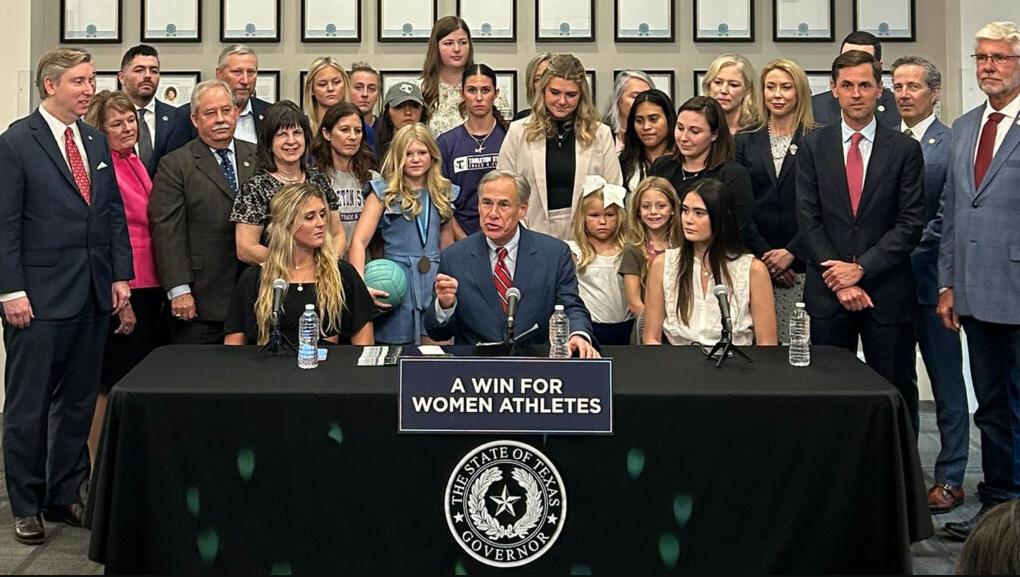
As Texas House Democrats fled the state to prevent Republicans from gerrymandering Democratic-held districts to flip seats, they also blocked anti-transgender legislation from being considered simply by not showing up.
More than 50 House Democrats left Texas on Sunday in an attempt to pause — if not kill — recent Republican-proposed and Trump-encouraged measures making their way through the state House.
This move by Democrats is called “breaking quorum,” and means the Texas House has fewer than the required minimum number of representatives present to conduct business. In total, the Texas House has 150 seats. Republicans hold only 88 seats — less than the 100 required to meet quorum — pausing the legislative session.
The Democratic legislators traveled to Illinois and New York, two Democratic strongholds with outspoken governors vowing to protect them and prevent Republicans from gaining an unfair advantage in the middle of the legislative calendar — at Trump’s behest.
The major issue Texas Democrats are drawing attention to is the recent redistricting plan, which would flip five Democratic U.S. House of Representatives seats to Republican ones through the use of gerrymandering, or strategic manipulation of district boundaries. This gerrymandering would likely result in Republicans retaining control of the U.S. House in the 2026 midterms.
In addition to redistricting, Republicans have proposed Senate Bill 7, also known as “The Trans Bathroom Ban.” This bill mandates that people use the bathroom in government buildings, schools, and women’s violence shelters that corresponds with their sex at birth, rather than their gender identity. The bill would also require incarcerated individuals to be placed in facilities that match their sex at birth.
Proponents of the bill, like Fran Rhodes, the president of True Texas Project — a hardline conservative group that opposes LGBTQ rights and immigration — argue that without SB 7, “we put women and girls at risk.”
This proposed legislation has been denounced by Equality Texas, which says it would not only put trans women at risk, but also cis women, who would be subject to “invasive gender inspections.” They argue this would undermine the Republicans’ stated intent of the bill by subjecting women to unnecessary scrutiny rather than protecting them.
Multiple cis women have come out in opposition to the bill, including Wendy Davis, a lawyer and former member of the Texas State Senate, who called the bill “a solution without a problem.”
Davis continued, saying that “Our trans sisters deserve to be safe in the restroom, just like we deserve to be safe in the restroom.”
Additionally, some Black Texans have sounded the alarm on this bill, likening it to Jim Crow-era segregation legislation — but instead of skin color, it uses gender identity to discriminate.
As the clock runs out on this 30-day special session ending Aug. 19, there is a chance Republican Gov. Greg Abbott could extend the session, as it is within his power as governor.
Texas Democrats hope this will pressure Republicans to work with them to reach a compromise on both redistricting and killing the anti-trans bill.
Texas
Princeton Texas Diverse group cancels Pride
The ACLU of Texas requested that Princeton ISD “immediately reverse your decisions to terminate PTX Diverse

By David Taffet, Senior Staff Writer | PRINCETON, Texas – John Kusterbeck, founder of Princeton TX Diverse, said his city’s Pride event, originally scheduled for June 29, has been canceled for now because the venue they had intended to use has canceled the contract.
Pride was scheduled to return to Princeton ISD’s high school, but the school district canceled use of the venue for two reasons: the organization failed to include a disclaimer and it has been distributing banned books.
The ACLU has filed a complaint on behalf of the group based on the fact that the group has consistently included a disclaimer in promotional materials that the event is not sponsored by the school district and the fact there is no list of banned books.

Princeton is a fast-growing Metroplex suburb, located 30 miles northeast of Dallas near the center of Collin County. The population at the time of the 2010 census was just over 6,000. Today it is about 26,000. And that population includes a large number of LGBTQ residents.
Several hundred people attended last year’s Pride celebration that took place in a Princeton ISD school, organizers said.
Because the first Pride event was so successful, Kusterbeck reserved the school for this year’s Pride. But then he received a letter from Princeton ISD Superintendent Donald McIntyre canceling the agreement.
“Board policy,” McIntyre wrote, “clearly states that any and all communications with the public by the lessee shall clearly state the event is not sponsored by the district as well as identify the nature of the activity and sponsoring organization.”
Kusterbeck was careful to include a disclaimer on all information about Pride. However, in a Facebook post after the event thanking the board president for her support, no disclaimer was attached. The post was facetious since the board president had done everything she could to NOT support the group.
“Therefore, based on this information and the terms of the agreement that specifically provided that ‘violation(s) of rules and regulations for use of district facilities may result in permanent cancellation of the non-school user’s use of district facilities,’ you and Princeton TX Diverse are no longer able to rent and utilize district facilities,” McIntyre wrote.
In its complaint against the school district, the ACLU found that the policy has not affected the relationship between Princeton ISD and several churches that meet on school property.
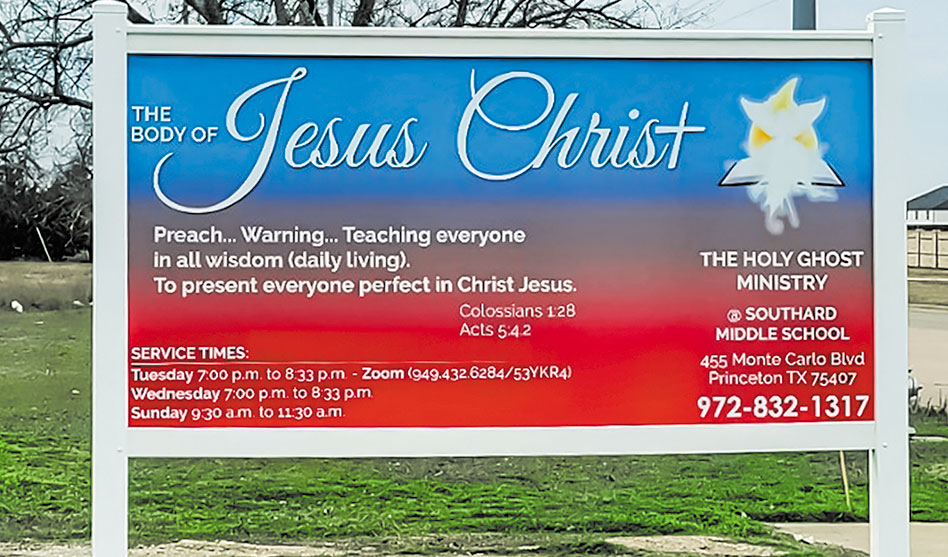
“For example, the Heart+Soul Church hosts worship services at Princeton High School and has often failed to include the required disclaimer in its social media post about these events, even when prominently advertising that its services take place on district property,” the ACLU wrote in its complaint. Examples from three
Instagram posts accompany the assertion.
The church lists the address of Princeton High School as the place where the church worships, but there is no disclaimer.
Holy Ghost Ministry holds services at Southard Middle School and has a physical sign announcing the location of its services. Missing from the sign is the required disclaimer.
Faith Baptist Church held a National Day of Prayer celebration at Lovelady High School, which it promoted on Facebook. No disclaimer ran on the Facebook page or the event registration page, the ACLU found.
Faith Baptist Church charged from $25 to $800 to reserve seats and tables at the event. That is a clear violation of Princeton ISD’s prohibition on charging admission to events on their property.
In its complaint, the ACLU notes that it is not asking the school district to cancel use of its buildings by these churches. Instead, the ACLU simply wants Kusterbeck and Princeton TX Diverse to be treated equally.
In addition, the school district charged Kusterbeck and Lee with distributing “inappropriate material at a Lion’s Club event” that took place on school property.
“Specifically, it has come to my attention that you had a basket of ‘banned books’ with inappropriate reading materials for children under the Princeton ISD Board Policies and intended to award this basket to winners of the coloring contest,” McIntyre wrote in a separate letter.
Among the “banned books” were And Tango Makes Three, the true story of two male penguins who hatched an abandoned egg and raised the chick at the Central Park Zoo in New York.
So Kusterbeck filed a “Request for Information” form: “I would like a list of all books that have officially been banned from Princeton ISD libraries,” he requested under “Public information requested.”
In responding, Officer for Public Information Jean Ann Collins checked off a box that read, “The information you requested does not exist.”
Despite a banned book list not existing, McIntyre threatened to have Kusterbeck and Lee removed from any school property and charged with criminal trespass.
“The district’s letter fails to explain what board policies were violated, if any, by the distribution of so-called ‘banned books’ when no books are actually banned by the district,” the ACLU pointed out.
Kusterbeck noted that on the most extensive banned book lists circulating and being cited around the state, more than half of the books challenged have LGBTQ or racial content. However, the Bible is also included on the lists on the grounds that it includes violent and sexual content. Yet at the city’s Onion Festival, which took place on school grounds, one vendor distributed Bibles.
In addition to asking for an apology, the ACLU requested that Princeton ISD “immediately reverse your decisions to terminate PTX Diverse, Mr. Kusterbeck’s and Ms. Lee’s equal access to Princeton ISD facilities, including their ability to serve as vendors and to rent district property, in accordance with each of the neutral rules established by the district.”
They also request, “that you provide training to all district personnel on the First Amendment and on LGBTQIA+ cultural sensitivity.”
******************************************************************************************

David Taffet is the Senior staff reporter for the Dallas Voice newspaper, the leading source of news in Texas for the LGBTQ+ community. He is also host of Lambda Weekly on 89.3 KNON-FM, in Dallas, on Sundays at 1 p.m. Taffet also serves as the Secretary of Congregation Beth El Binah.
******************************************************************************************
The preceding article was previously published by the Dallas Voice and is republished with permission.
Texas
Texas AG Ken Paxton sues to stop new gender identity guidelines
Texas Attorney General aims 75th lawsuit at Biden Administration this one to halt compliance of gender identity mandates in the workplace
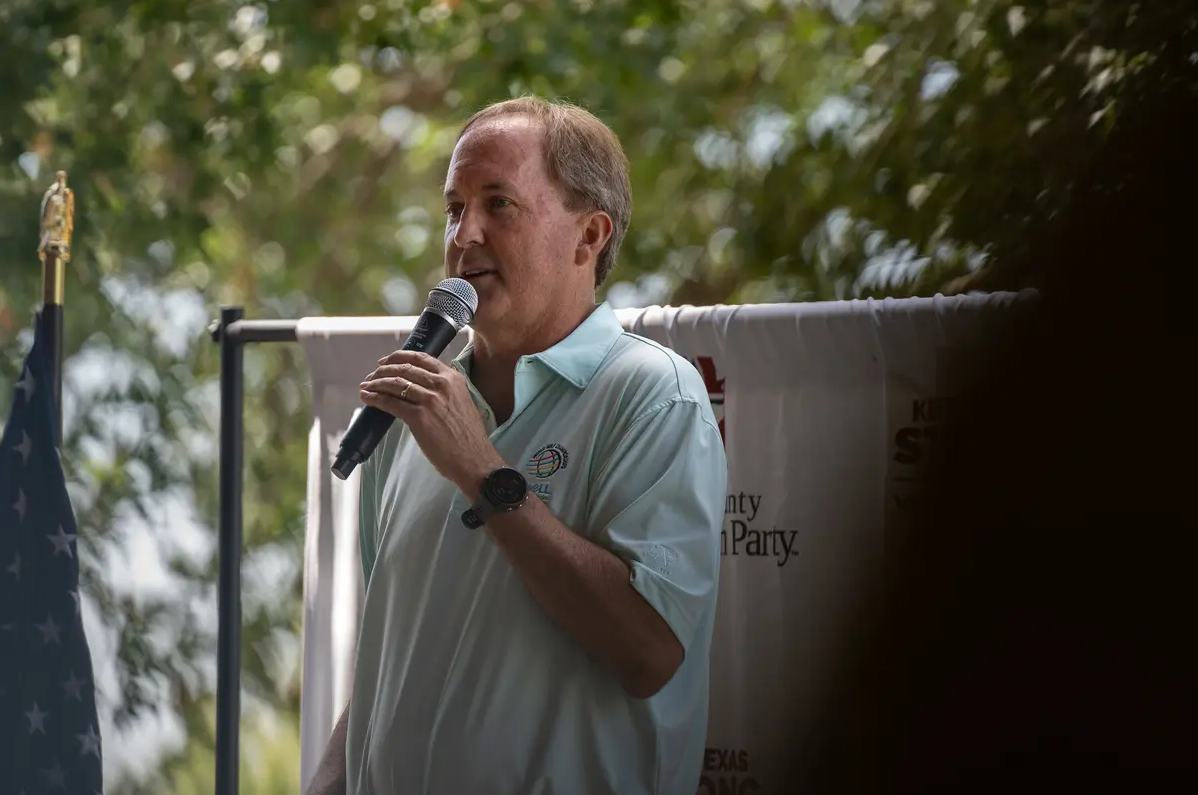
By Nina Banks | AMARILLO, Texas – Attorney General Ken Paxton is suing the Equal Employment Opportunity Commission and members of the Biden Administration to contest LGBTQ+ workforce protections.
The guidance, released last month, states that denying an employee accommodations for their gender identity, such as prohibiting an employee to use the bathroom of their gender identity, is unlawful workplace harassment. The guidance isn’t legally enforced and instead it serves to distinguish what constitutes harassment under the EEOC.
The lawsuit filed on Tuesday argues that the EEOC specifically targeted Texas with its new guidance, as some Texas employers do not have to comply with federal policies meant to prohibit discrimination. Paxton claims the guidance would force Texas to reevaluate its agencies, causing “irreparable harm” to state finances and sovereignty, and redefine “sex” under the Title VII of the Civil Rights Act of 1964.
“Yet again the Biden Administration is trying to circumvent the democratic process by issuing sweeping mandates from the desks of bureaucrats that would fundamentally reshape American law,” Paxton said in a statement. “Texas will not stand by while Biden ignores court orders forbidding such actions and we will hold the federal government accountable at every turn.”
This is Paxton’s 75th lawsuit against the federal government since Biden was inaugurated in January 2020. Paxton has long portrayed himself as the bulwark against Biden’s agenda and has positioned Texas at the forefront of the largest conservative legal battles of the day.
This lawsuit parallels a motion from October 2022 where Paxton sued the Biden administration over a 2021 EEOC guidance that explained the parameters then for gauging harassment and the Supreme Court’s stance on Bostock v. Clayton County, which prohibits discrimination on the basis of sexual orientation or gender identity.
A longtime adversary to gender-affirming policy, Paxton claimed the 2021 guidance forced the Biden Administration’s “political agenda” onto Texas. In that case, the U.S. District Judge Matthew Kacsmaryk ruled in favor of Paxton, concluding that the Biden Administration’s protections for LGBTQ+ employees were too extensive.
Paxton filed this lawsuit, like many of his legal challenges, in Amarillo, where one judge hears nearly all cases—Kacsmaryk.
Kacsmaryk was appointed to the bench by President Donald Trump as the first judge appointed directly from a religious liberty law firm. Kacsmaryk previously worked at First Liberty, a Plano-based conservative Christian law firm, where he frequently litigated cases involving abortion, contraception and gender identity.
Reporter Eleanor Klibanoff contributed to this story.
******************************************************************************************
/https://static.texastribune.org/media/profiles/Nina_Banks.jpeg)
Nina Banks is the Tribune’s Dallas Press Club Foundation reporting fellow based in Arlington where she is studying communications at Tarrant County College. She is managing editor of the student-run newspaper, The Collegian, and hosts the staff’s podcast, The First Draft. When Nina isn’t hunched over her laptop, you can find her sipping on boba tea.
******************************************************************************************
The preceding article was previously published by the Texas Tribune and is republished with permission.
Your donation to The Texas Tribune will help investigative journalism that impacts state policies and politics. It is the last week of our Spring Member Drive, and our newsroom relies on readers like you who support independent Texas news. Donate today.
Texans need truth. Help us report it.
Independent Texas reporting needs your support. The Texas Tribune delivers fact-based journalism for Texans, by Texans — and our community of members, the readers who donate, make our work possible. Help us bring you and millions of others in-depth news and information. Will you support our nonprofit newsroom with a donation of any amount?
YES, I’LL DONATE TODAY
Texas
Second Texas school district investigated re: gender identity policy
Katy ISD’s board voted to require staff to notify parents if their child wants to use a different pronoun or identifies as a different gender
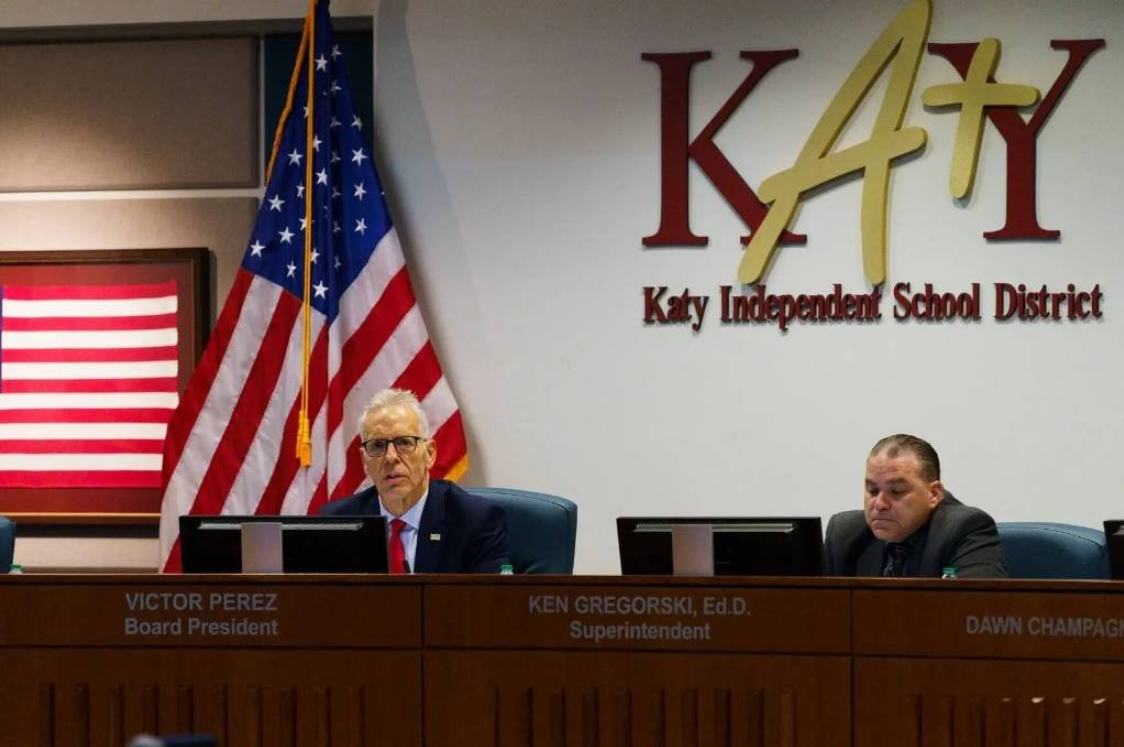
By Nina Banks | KATY, Texas – The U.S. Department of Education’s Office for Civil Rights opened an investigation Monday into Katy Independent School District’s gender identity policy on the basis of gender harassment under Title IX. The investigation came nine months after the district adopted a policy that notifies parents if their child requests to use a different name or pronouns at school.
Katy ISD did not respond to a request of how many parents have been notified this year under the new policy, which requires staff to inform parents that students are transgender or ask to use different names or pronouns.
The Houston Chronicle reported in December that the district had notified parents at least 23 times since the policy was adopted.
The gender identity policy also bars schools from teaching “gender fluidity” and denies students from competing in sports with the gender they identify with, which mirrors state legislation already regulating K-12 athletics.
Students Engaged in Advancing Texas, a student-led advocacy group, filed a complaint with the U.S. Department of Education in November regarding the policy. Katy ISD graduate and member of SEAT Cameron Samuels labels the investigation as a win against the conservative policies being passed in the district.
“Elected solely on platforms to target marginalized students, far-right school board candidates accomplished exactly what they were elected to do: weaponize identity and neglect students’ educational needs,” they said.
Title IX prohibits sex-based discrimination in educational settings or federally funded activities. Gov. Greg Abbott has loudly voiced his opposition to the federal law recently ordering the Texas Education Agency to disregard the Biden administration’s expansion of Title IX.
“The district is committed to offering equal educational opportunities to our entire community,” a spokesperson from Katy ISD told the Tribune in a response to the investigation. “While we have received the OCR filing and deny any wrongdoing, we are committed to remaining fully cooperative and responsive throughout the process.”
Victor Perez, Katy ISD board president and proponent of the policy, argued that the policy was “mischaracterized” by community members as an attack on its queer and transgender students and instead relieves the burden for staff withholding information from parents. The policy was passed at a board meeting in August with a vote of 4-3 after four hours of public comment.
Alastair Parker, a member of the Cinco Ranch High School Gender-Sexuality Alliance, spoke at the board meeting in opposition to the policy.
Parker and others argued that the policy infringes on the rights of transgender kids to express themselves and opens them to potential harm if they are outed to transphobic parents or caregivers.
Johnathan Gooch from Equality Texas, a nonprofit advocacy group for LGBTQ+ Texans, said he hopes students recognize their power to report policies like this in the wake of the increasing number of legislation targeting LGBTQ+ youth.
This isn’t the first instance in Texas of a gender related policy being investigated on the federal level. Carroll ISD in Tarrant County was reported to have eight open investigations last February after it eliminated protections over race, religion, gender and sexual orientation.
There are documented mental health benefits to using preferred pronouns. A research team at the University Texas at Austin conducted a study in which they concluded that students in gender-affirming environments report 71% fewer symptoms of severe depression, a 34% decrease in reported suicidal ideation and a 65% decrease in suicide attempts.
“When students place their trust in teachers and school administration, the school has a duty to preserve that trust,” Gooch said. “That duty requires schools to ensure that no disclosure would place a student in harm’s way.”
Parker has been out as a transgender man since the seventh grade and is supported by his father, who he resides with. He acknowledged that this isn’t the case for many of his classmates as some have parents that are less accepting.
His teachers have gone by his preferred name and pronouns for his entire high school experience. But since the policy has been enacted, he has seen some of his peers go by their deadnames fearing that their parents would be notified.
Over the past year, other schools across the state have adopted similar policies.
Keller ISD, which is also in Tarrant County, passed a policy in late June that prevents students from using their preferred name and pronouns or using restrooms with the gender they identify with.
The policy was met with retaliation from the Texas American Civil Liberties Union, writing in a letter to the district that the policy is “deeply invasive and unlawful for school administrators to interrogate students’ private medical information in this way.”
As the end of the school year nears, Parker observed the policy being enforced at varying levels of severity by teachers. The passing of legislation or policy like this deters from the ongoing health crisis for queer and transgender youth and is wholly unnecessary, he said.
“If a child’s not telling their parents something like that, it’s for a reason,” he said. “I know that most of the people who are in favor of this are the ones who bounce off whatever their parents have told them to repeat.”
******************************************************************************************
/https://static.texastribune.org/media/profiles/Nina_Banks.jpeg)
Nina Banks is the Tribune’s Dallas Press Club Foundation reporting fellow based in Arlington where she is studying communications at Tarrant County College. She is managing editor of the student-run newspaper, The Collegian, and hosts the staff’s podcast, The First Draft. When Nina isn’t hunched over her laptop, you can find her sipping on boba tea.
******************************************************************************************
The preceding article was first published by The Texas Tribune and is republished with permission.
Disclosure: Equality Texas has been a financial supporter of The Texas Tribune, a nonprofit, nonpartisan news organization that is funded in part by donations from members, foundations and corporate sponsors. Financial supporters play no role in the Tribune’s journalism. Find a complete list of them here.
Texans need truth. Help us report it.
Independent Texas reporting needs your support. The Texas Tribune delivers fact-based journalism for Texans, by Texans — and our community of members, the readers who donate, make our work possible. Help us bring you and millions of others in-depth news and information. Will you support our nonprofit newsroom with a donation of any amount?
YES, I’LL DONATE TODAY
Texas
Gov. Abbott tells state ignore federal student LGBTQ+ protections
The new Title IX rules expanded the definition of sex-based harassment. Texas is also suing the Biden administration to block the changes
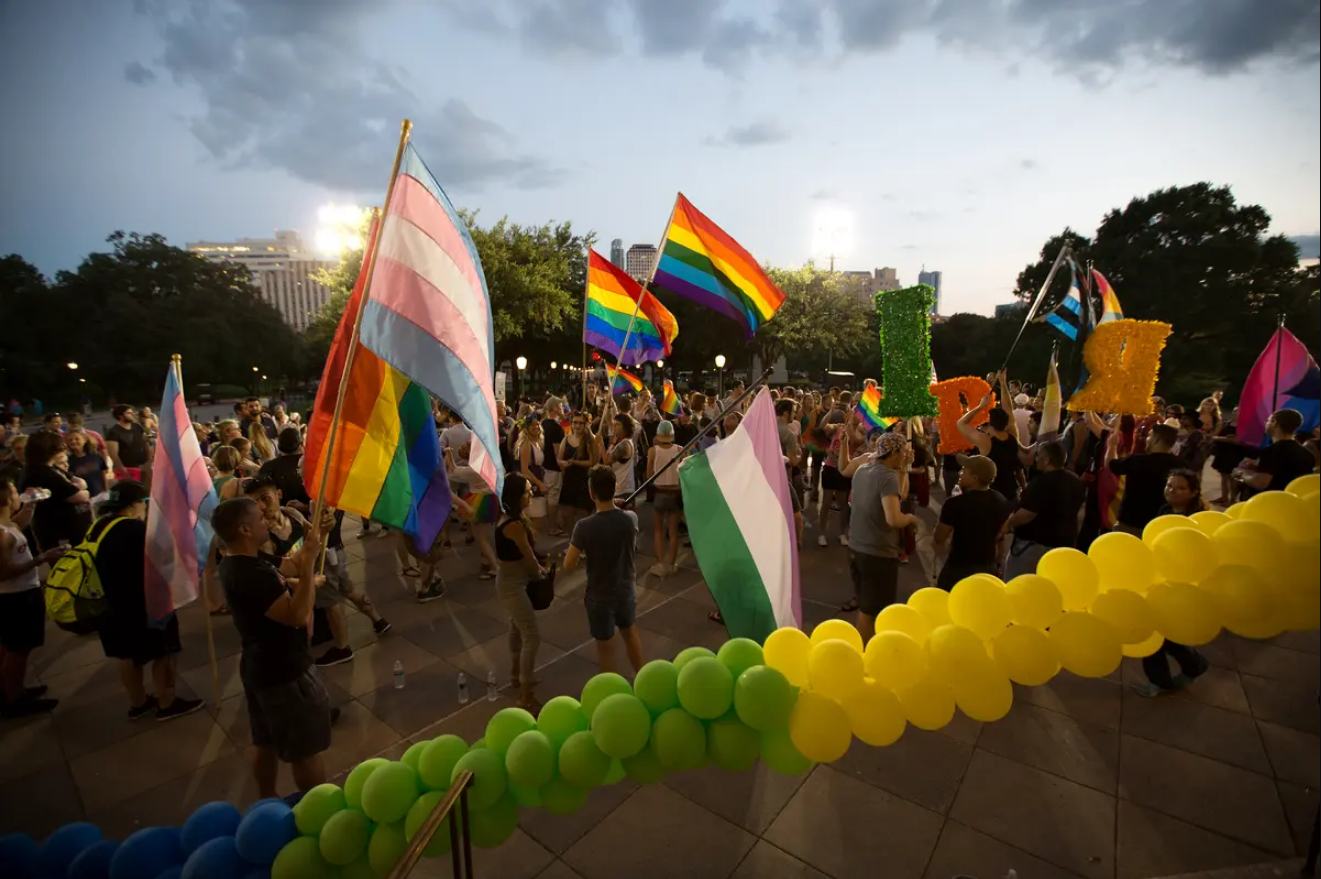
By Sneha Dey | AUSTIN, Texas – Gov. Greg Abbott ordered the Texas Education Agency on Monday to ignore a Biden administration rule that expanded federal sex discrimination protections to include LGBTQ+ students.
The Biden administration recently revised the rules for Title IX, the sweeping civil rights law that prohibits sex-based discrimination at federally funded colleges and K-12 schools. The new rules, which are set to go into effect in August, redefined sex discrimination and sex-based harassment to prevent misconduct based on sex stereotypes, pregnancy, gender identity and sexual orientation. It codifies initial guidance documents that prompted Texas Attorney General Ken Paxton to sue the Biden administration last year.
“Congress wrote Title IX to protect women. Biden, with no authority to do so, rewrote Title IX to protect men who identify as women,” Abbott wrote Monday on social media platform X.
Abbott’s order came the same day Paxton announced he had sued the Biden administration Monday to block the Title IX changes. Texas joins a growing number of Republican-led states that have berated the new rules, setting the stage for a legal fight over LGBTQ+ student protections. They say the Biden administration misinterpreted the intent of Title IX.
In its final interpretation of Title IX, the Biden administration sought to extend a 2020 U.S. Supreme Court case decision related to workplace discrimination to students. The high court ruled in Bostock v. Clayton County that Title VII, a civil rights law that bars employment discrimination on the basis of sex, applied to gay and transgender workers.
The Title IX changes also walk back rules set during the Trump administration that required “live hearings” in which students accused of sexual misconduct could question accusers in a courtroom-like setting. The Biden administration kept Trump-era provisions that allow informal resolutions and prohibit penalties against students until an investigation is complete.
The Texas Tribune partners with Open Campus on higher education coverage.
******************************************************************************************
/https://static.texastribune.org/media/profiles/SnehaDey_headshot_3x2.jpg)
Sneha Dey is an education reporter for The Texas Tribune. She covers pathways from education to employment and the accessibility of postsecondary education in Texas, with an eye on college readiness, community colleges and career and technical training. Prior to joining the Tribune, she had stints at NPR’s Education Desk and Chalkbeat. Sneha is a graduate of Northwestern University’s Medill School of Journalism. She grew up in New York and is based in Austin.
******************************************************************************************
The preceding article was previously published by the Texas Tribune and is republished with permission.
Texans need truth. Help us report it.
Independent Texas reporting needs your support. The Texas Tribune delivers fact-based journalism for Texans, by Texans — and our community of members, the readers who donate, make our work possible. Help us bring you and millions of others in-depth news and information. Will you support our nonprofit newsroom with a donation of any amount?
YES, I’LL DONATE TODAY
Texas
Texas politics leave transgender foster youth isolated
After Kayden Asher told his dad that he was trans, their relationship fell apart and the teenager entered Texas’ troubled foster care system
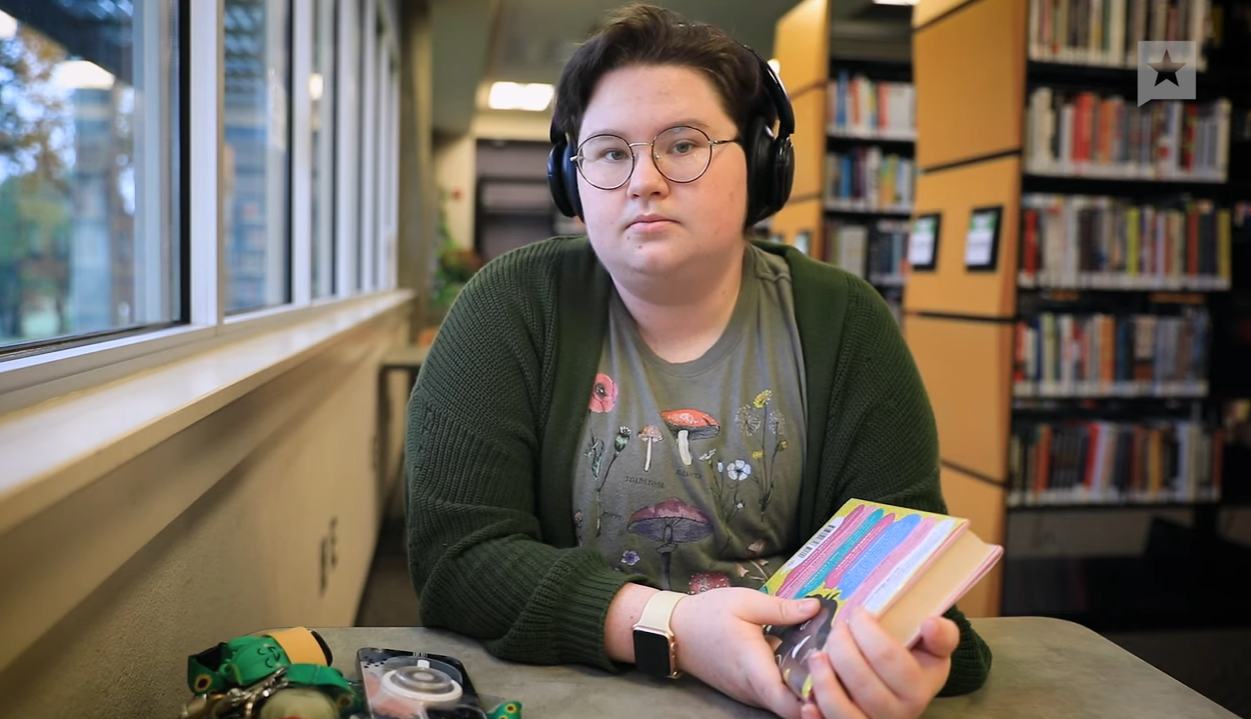
By Greta Díaz González Vázquez | AUSTIN, Texas – After Kayden Asher came out as transgender to his family and small Gulf Coast community, their rejection sent him into a spiral of mental health episodes that landed him in the care of the Texas Department of Family and Protective Services.
During his years in foster care, Asher moved between nearly 10 different placements, including mental hospitals, residential treatment centers and foster homes.
At the same time, Texas politicians intensified efforts to regulate the lives of transgender youth and banned gender-affirming care — such as hormone therapy, which Asher received while in foster care — for trans kids.
Since leaving the state’s care, Asher has pursued a degree in paralegal studies at Austin Community College with the hope of eventually working with queer foster youth who he said are increasingly isolated by state policies. But as the political climate has increased hostilities toward transgender people, Asher fears the hostility in his home state will force him to leave Texas.
Research shows that LGBTQ+ foster kids are more likely to live in group home settings, move between placements and face mistreatment. Yet Texas CPS collects little information about the sexual orientation or gender identity of youth in foster care. Asher discusses how growing up trans in Texas foster care made it more difficult to begin building a life once he aged out of the system.
Watch:
******************************************************************************************
/https://static.texastribune.org/media/profiles/Headshot2022_GDGV_02_-_Greta_Diaz.jpeg)
Greta Díaz González Vázquez was a two-time Tribune fellow on the multimedia team in 2022 and 2023. She graduated with a master’s degree in journalism from The University of North Texas, where she also earned a certificate in narrative journalism.
Greta worked as a journalist in Mexico for six years, freelancing and doing multimedia journalism for a public radio station. Her reporting is focused on gender violence in Mexico and science. Greta’s work has earned state and national awards in her home country, including the National Award for Science Journalism and the National Faces of Discrimination Award.
The preceding article was first published by The Texas Tribune and is republished with permission.
Texans need truth. Help us report it.
Independent Texas reporting needs your support. The Texas Tribune delivers fact-based journalism for Texans, by Texans — and our community of members, the readers who donate, make our work possible. Help us bring you and millions of others in-depth news and information. Will you support our nonprofit newsroom with a donation of any amount?
YES, I’LL DONATE TODAY
Texas
Texas Governor Abbott: “We Want To End” trans teachers
Abbott announced in a keynote speech to the Young Conservatives of Texas an intention to “end” trans and GNC teachers being able to teach

By Erin Reed | DALLAS, Texas – During a session at the 2024 Young Conservatives of Texas Convention held at the Hilton Anatole in Dallas this weekend, Gov. Greg Abbott stated that trans and gender nonconforming (GNC) teachers must be “ended” in the state.
This statement follows crackdowns on transgender teachers in various Republican-controlled states in the United States. Book bans, “Don’t Say Gay” legislation, and anti-drag laws have increasingly been weaponized against all transgender and GNC individuals, especially within educational settings. In Texas, many of these laws have been blocked due to being likely unconstitutional; however, this has not prevented the governor from making one of his strongest statements yet in support of overt discrimination toward transgender people.
The statement, first reported by journalist Steven Monacelli, addresses a teacher in a small town in Texas. Abbott, who repeatedly refers to the teacher as a “man dressed as a woman,” states that the teacher’s mere presence “normalizes the concept” of being transgender or GNC—a concept Gov. Abbott then asserts the state should try to prohibit. He states, “This kind of behavior is something we need to end in the state of Texas.”
Abbott said:
“Up the street from where we are right now is Lewisville, Texas. In Lewisville, Texas, in the high school, recently, as in just a month ago, they had a high school teacher who was a man who would go to school dressed as a woman in a dress, high heels, and makeup. Now, what do you think is going through the mind of the students that’s in that classroom? Are they focusing on the subject that this person is trying to teach? I don’t know. What I do know are these two things. One is this person, a man, dressing as a woman, in a public high school in the state of Texas, he’s trying to normalize the concept that this type of behavior is okay. This type of behavior is not okay. And this is the type of behavior that we wanna make sure we end in the state of Texas.”
Within hours, multiple GOP officials in Texas signed onto Abbott’s call to ban trans and GNC teachers from teaching. These include Texas GOP Chair Matt Rinaldi and multiple Texas State legislators and candidates such as Briscoe Cain and Brent Money. Their reaction to Abbott’s comments are in line with the Texas GOP platform passed in 2022 that call extensive restrictions on trans and GNC individuals in schools.
It is important to note that federal law prohibits discrimination against LGBTQ+ people in the workplace. A Supreme Court decision, Bostock vs. Clayton County, specifically stated that Title VII protections around nondiscrimination in the workplace apply to trans and GNC people. That court decision is currently being used to overturn anti-trans laws in Title IX cases in schools as well as bathroom bans, sports bans, and more.
Recent efforts have targeted transgender and gender-nonconforming individuals within state school systems. For example, Florida’s “Don’t Say Gay” legislation was recently extended to apply to transgender teachers who share pronouns or use titles different from their sex assigned at birth. This law forced a transgender female teacher to go by Mr. and use he/him pronouns in the classroom or face termination. Similarly, a nonbinary teacher was banned from using the title Mx. in school.
A recent case in the 11th Circuit Court of Appeals, however, blocked that Florida law as likely in violation of the First Amendment. Like Governor Abbott, attorneys for the state of Florida argued that transgender teachers in the classroom were a “distraction” to students and that a trans woman teacher was harming her students’ education with her mere existence and expression of her identity. The judge, however, struck down this notion, noting that the trans woman teacher had higher test scores than the district average.
It remains to be seen whether Gov. Abbott and the Republican Party of Texas will lean into anti-trans politics going into the 2024 elections. The willingness of some influential Texas Republicans to endorse Gov. Abbott’s position in the video suggests that they might. If so, there is evidence that this could harm candidates who are in tight races in the state and espouse such positions. For instance, in 2023, candidates running on anti-trans issues experienced significant defeats nationwide, including the defeat of 70% of all Moms For Liberty candidates in school boards.
Regardless of electoral consequences, the state has become harsher for transgender people in recent years. Attorney General Ken Paxton has continued to subpoena medical records of transgender individuals who cross state lines to obtain care. He has also attempted to obtain lists of PFLAG members, including addresses and phone numbers.
Abbott has not been much better: under his leadership, transgender families across the state were investigated under the premise that providing medical care for their transgender youth amounted to child abuse. This latest statement from Gov. Abbott shows an intent to continue weaponizing state powers against transgender and gender-nonconforming people in Texas.
****************************************************************************

Erin Reed is a transgender woman (she/her pronouns) and researcher who tracks anti-LGBTQ+ legislation around the world and helps people become better advocates for their queer family, friends, colleagues, and community. Reed also is a social media consultant and public speaker.
******************************************************************************************
The preceding article was first published at Erin In The Morning and is republished with permission.
Texas
Appeals court blocks Texas from investigating trans kids & families
“Texas PFLAG families are grateful the court has once again recognized the harm caused by investigating parents for loving their trans kids”
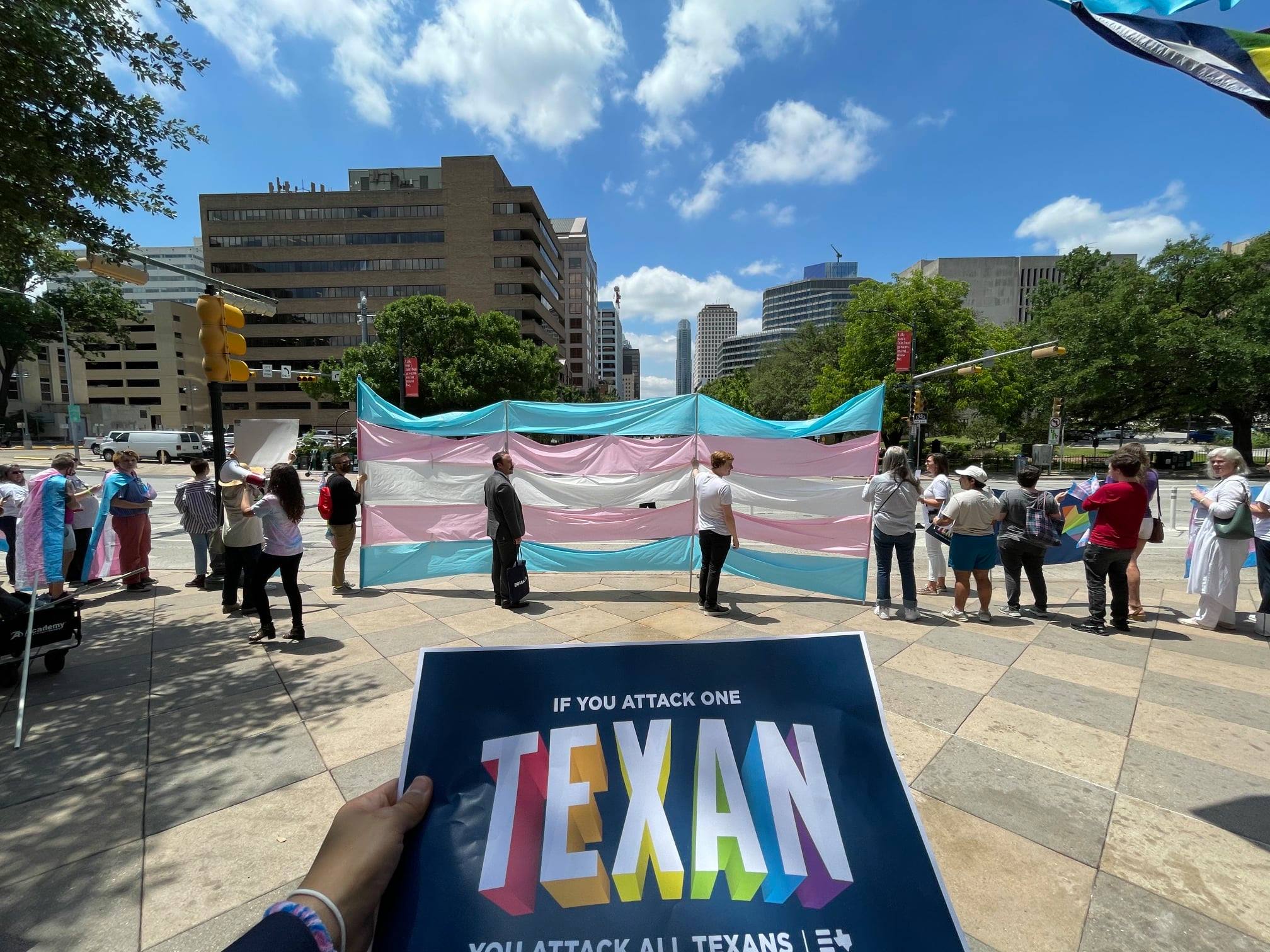
AUSTIN, Texas — On Friday the Texas Court of Appeals, Third District, upheld injunctions in two related cases against the Texas Department of Family and Protective Services (DFPS) barring the DFPS from implementing the agency’s rule expanding the definition of child abuse to presumptively treat the provision of gender-affirming care as child abuse.
The injunctions bar DFPS from implementing the rule by investigating these families based solely on allegations that they are providing gender-affirming care to their adolescents, or taking any action in open investigations other than to close them so long DFPS can do so without making further contact with the families.
Today’s ruling came in two lawsuits, Doe v. Abbott and PFLAG v. Abbott, filed by Lambda Legal, the American Civil Liberties Union Jon L. Stryker and Slobodan Randjelović LGBTQ & HIV Project, the ACLU Women’s Rights Project, the ACLU of Texas, and the law firm of Baker Botts LLP.
“Texas PFLAG families are grateful that the court has once again recognized the harm caused by investigating parents for affirming and loving their transgender kids,” said Brian K. Bond, CEO of PFLAG National. “PFLAG National and our members and supporters will continue leading with love, just as we’ve done for the last 51 years, because when courageous love takes action, our families are stronger, our communities are safer, and our LGBTQ+ loved ones across races, places, and genders thrive.”
In September of 2022, the Travis County District Court issued a third injunction blocking the State of Texas from implementing a directive issued by Republican Governor Greg Abbott that targets trans youth and their families across Texas.
The directive ordered the Department of Family and Protective Services (DFPS) to investigate parents who work with medical professionals to provide their adolescent transgender children with medically necessary healthcare.
The directive could have led to transgender youth being placed in foster care and their parents criminally charged with child abuse—just for following the advice of their physicians and mental health providers.
“We are gratified that the Court upheld the district court’s injunctions protecting families of transgender young people across the state from unlawful investigations under the DFPS rule,” said Paul D. Castillo, senior counsel, Lambda Legal. “The Court recognized yet again that being subjected to an unlawful and unwarranted investigation causes irreparable harm for these families who are doing nothing more than caring for and affirming their children and seeking the best course of care for them in consultation with their medical providers.”
“Transgender youth have always existed and always will, and the vast majority of Texans do not support separating them from their families or taking away their life-saving health care,” said Ash Hall, LGBTQ+ policy and advocacy strategist with the ACLU of Texas. “The maneuvers by Texas state officials against transgender youth are bullying masquerading as policy. Nothing could be further from abuse than parents loving and supporting their transgender children. This decision is another much-needed victory for trans youth and those who love and support them.”
“We are grateful the court saw through this dangerous and transparently discriminatory action by Texas officials,” said Chase Strangio, deputy director for transgender justice at the ACLU’s LGBTQ & HIV Project. “Our clients and countless families like theirs are guided by love and compassion for their transgender youth, following the guidance of their doctors and fighting for the futures their family deserves. These baseless and invasive investigations are a dangerous abuse of the state’s power and one we’re thankful the Texas courts have consistently ruled against.”
Texas
Texas school superintendent suspended over trans actor’s removal
He was suspended in connection with the investigation into efforts to remove a trans senior from the school’s production of Oklahoma!
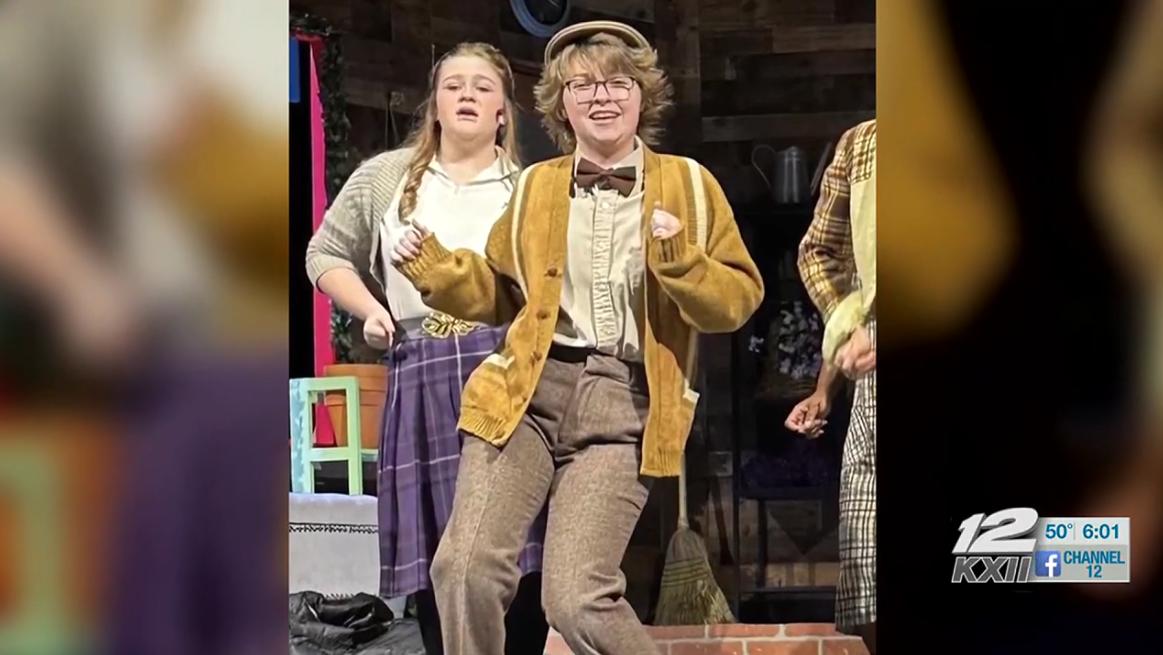
By Tammye Nash | SHERMAN, Texas – The Sherman Independent School District Board of Trustees, following a closed session meeting on Friday, March 8, has voted to suspend Superintendent Tyson Bennett.
Meghan Cone, the school district’s chief communications officer, confirmed Tuesday, March 12, that Bennett was suspended in connection with the investigation into Bennett’s efforts to remove transgender senior Max Hightower from the school’s production of Oklahoma! Cone said the SISD board had not made nor provided a statement following the vote.
Philip Hightower, Max’s father, said today he is “thrilled that the board made the right decision to protect our kids from discrimination. I’m thrilled Max and the rest can be safe, and I’m proud that our community united and said no to transphobia.”
The board suspended Bennett with pay and appointed Deputy Superintendent Thomas O’Neal as acting superintendent, effective immediately.
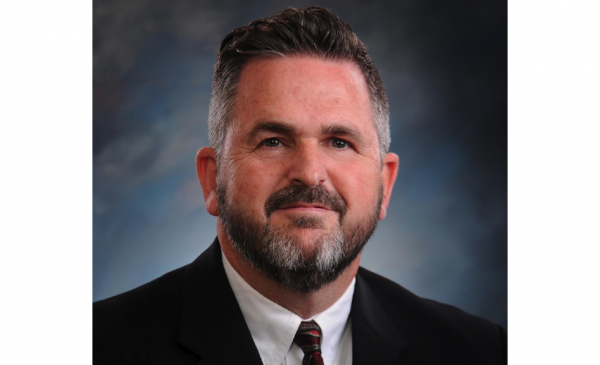
Gordy Carmona, North Texas community engagement and advocacy strategist for Equality Texas, was among those who spoke at the November board meeting where SISD trustees reversed Bennett’s decision to cancel and recast the play. “Hearing Sherman ISD’s decision to recast the Oklahoma! production last year based on a district rule barring students from playing roles that didn’t match their gender assigned at birth was alarming,” Carmona told Dallas Voice today. “Theatre is supposed to be one of the few safe havens for LGBTQIA+ students.
“Thankfully Sherman ISD listened to students, parents and community members concerns,” they continued, “Their reinstatement of the original cast was the first step in correcting some concerning problems within the district. News of the unanimous decision to suspend Superintendent Tyson Bennett was a welcomed surprise, but there is still room for growth in ensuring current and future LGBTQIA+ students can feel fully supported by their district.”
The controversy over the high school play began last October when the high school principal, at Bennett’s direction, contacted parents and students to tell them the planned production was being cancelled. That notification came after Max Hightower was cast in the male role of Aly Hakim, a major character in the play. Several female students were cast in male roles, as well.
In a confusing statement issued Nov. 6, district officials explained that Sherman ISD had no policy regarding how students are cast, except in this one instance and maybe in the future, but then again maybe not: “There is no policy on how students are assigned to roles. As it relates to this particular production, the sex of the role as identified in the script will be used when casting.” A second statement, issued by the district on Nov. 10 supposedly was intended to clear up confusion but really only muddied the waters further.
Bennett’s decision was that for the production to go on after the first of the year, later than originally planned, the show would have to be recast, and he wanted the school’s theater teachers to instead stage a version of the play rewritten for younger students.
But following a marathon board meeting later that month, in which dozens of parents, students and other community members turned out to criticize Bennett and his directives, the Sherman ISD board voted to rescind the directives completely and allow the production to go on as originally cast. The board at that time also removed Bennett’s authority over the school’s fine arts programs and announced an ongoing investigation into the situation.
Sherman High School staged its production of Oklahoma! in January with the original cast, including Max Hightower, in place.
******************************************************************************************

Managing Editor
Nash has been a professional journalist since 1982, and first began working for Dallas Voice in 1988, just four years after the paper was founded. She has worked at both weekly and daily newspapers over the years, but has always worked for community newspapers where the focus is on serving and improving the community you serve.
Nash has won numerous awards over the years for her work, and enjoys working with the other award-winning journalists at Dallas Voice who are as dedicated to the LGBTQ community as she is. Nash lives in Fort Worth with her partner of nearly 20 years, their two sons and their menagerie of pets. She spends her free time on her hobby of photography.
******************************************************************************************
The preceding article was previously by the Dallas Voice and is republished with permission.
-

 Theater4 days ago
Theater4 days ago‘Incitation to the Dance’ asks what happens to love when a younger man cuts in
-

 New York4 days ago
New York4 days agoPride flag removed from Stonewall Monument as Trump targets LGBTQ landmarks
-

 Philippines4 days ago
Philippines4 days agoPhilippines Supreme Court rules same-sex couples can co-own property
-

 Los Angeles3 days ago
Los Angeles3 days agoStonewall Young Democrats bounces back from “quiet year” with Hero Awards
-

 Florida4 days ago
Florida4 days agoDisney’s Gay Days ‘has not been canceled’ despite political challenges
-

 Italy5 days ago
Italy5 days agoOlympics Pride House ‘really important for the community’
-

 a&e features1 day ago
a&e features1 day agoFrom ‘So Random’ to sexy theater: LA’s very own Mathew Scott Montgomery
-

 Los Angeles1 day ago
Los Angeles1 day agoA new “queer summer camp” cycling event rises from the legacy of AIDS/LifeCycle
-

 Transgender2 days ago
Transgender2 days agoTrans-led organization FLUX celebrates a decade of “transformative” service to TGI communities
-

 Commentary2 days ago
Commentary2 days agoWhat Grindr’s pricey new subscription says about the gays, intimacy, and capitalism in the age of AI

